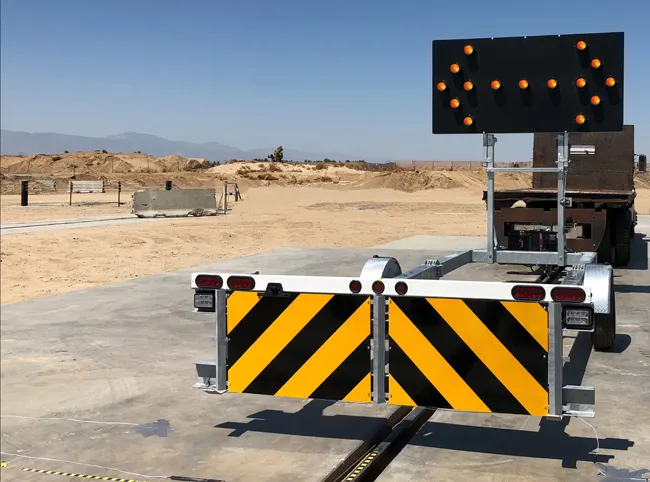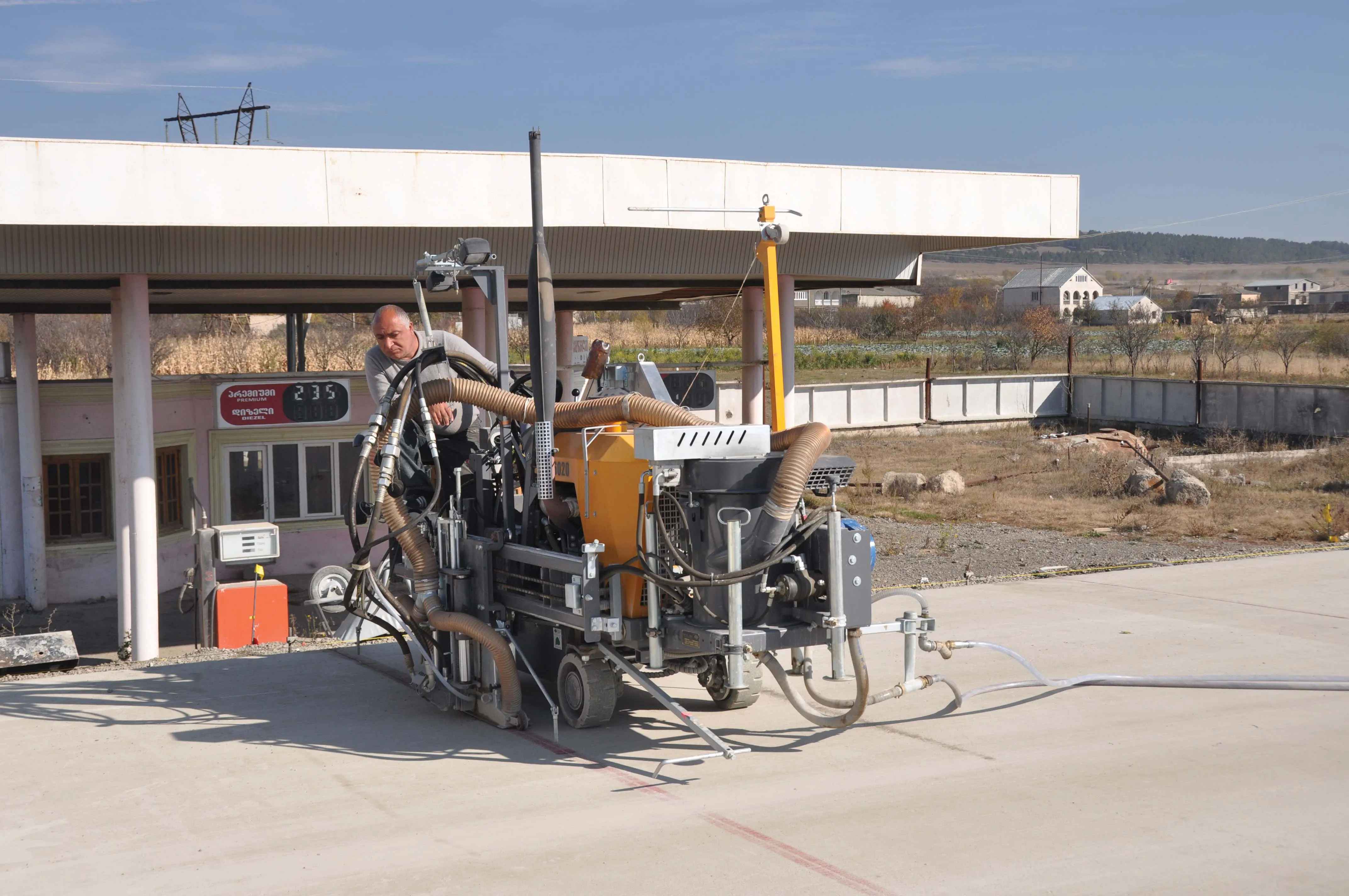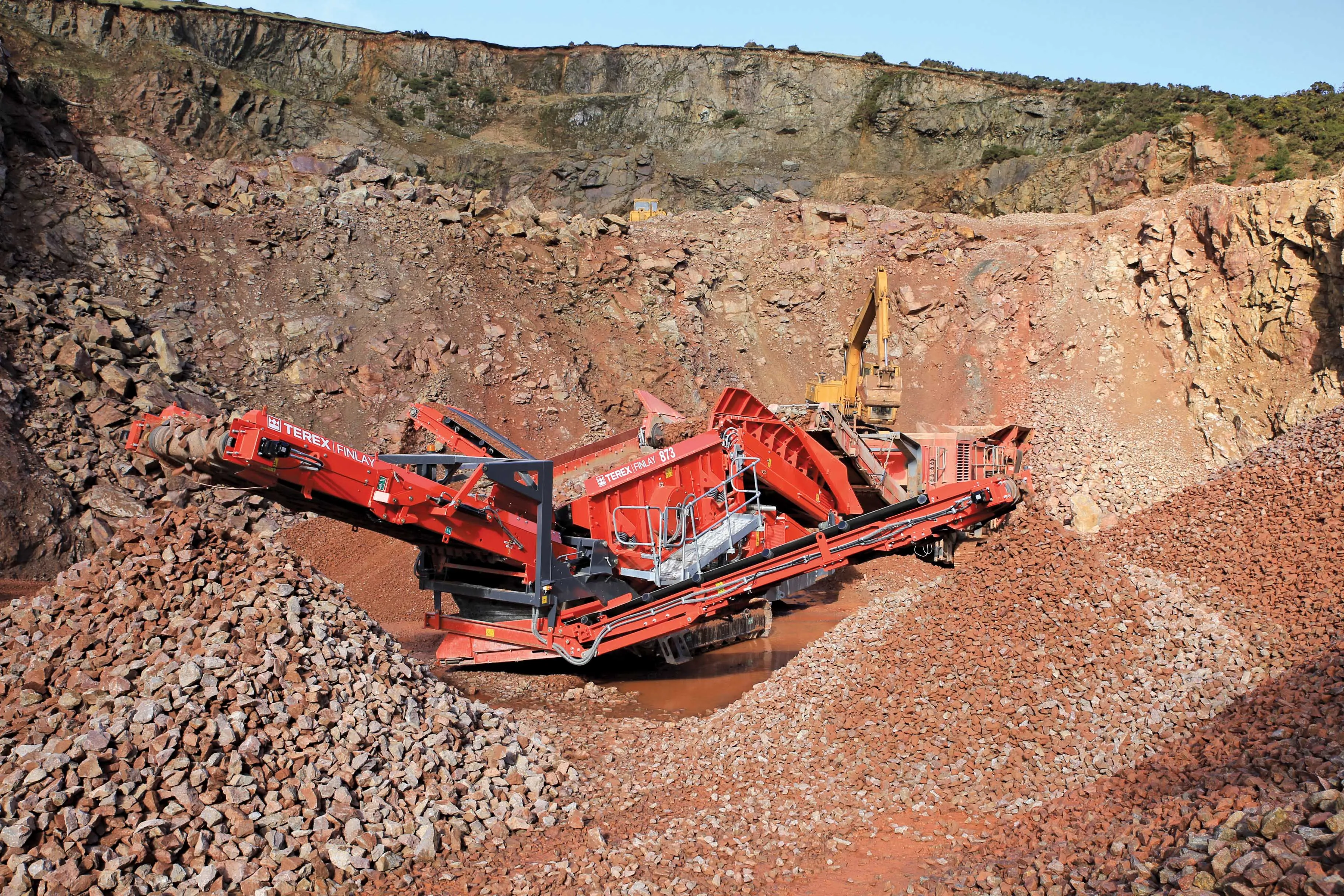
Gregory Highway Products says that its TTMA-200 Trailer has passed MASH TL-3 Crash Testing. Gregory Industries’ Trailer Truck Mounted Attenuator is now eligible for reimbursement under the Federal-aid Highway Program.
Gregory Highway Products says that its TTMA-200 trailer truck-mounted attenuator has passed Test Level 3 (TL-3) crash safety standards for the US market.
The standards are set out in the American Association of State Highway and Transportation Officials’ (AASHTO) Manual for Assessing Safety Hardware (MASH 2016). The TTMA-200 is now eligible for reimbursement under the US government’s Federal aid Highway Program, administered by the Federal Highway Administration.
The TTMA-200 was assigned control number CC-152. Gregory said that this letter of eligibility will help the company work with the various departments of transportation at state level to provide a low-cost solution for work zone protection.
Gregory claims that its unit, which is designed for use in mobile and stationary work zones, is one of the most versatile attenuator trailers on the market. Thanks to its hitch-mounted design, the trailer can be placed into service in minutes by attaching to most support vehicles with no modifications, explained Jeff Grover, vice president of highway products at Gregory.
“The simplified design offers contractors a means to protect employees while minimising the expenses of investing in new equipment and still meeting AASHTO’s stringent MASH TL-3 testing criteria,” said Grover.
The trailer absorbs energy through the use of an oversized mandrel which pushes into a smaller tube in the event of a crash. This dissipates energy by splitting the tube into four strips of metal on impact. These strips remain with the trailer and pose no hazard to workers or adjacent traffic.
The TTMA-200 is fully galvanised and built to last against moisture and corrosion. Since it does not require a dedicated support vehicle, the trailer is adaptable to a wide range of operations such as sweeping, salting, sanding, mowing and striping.







